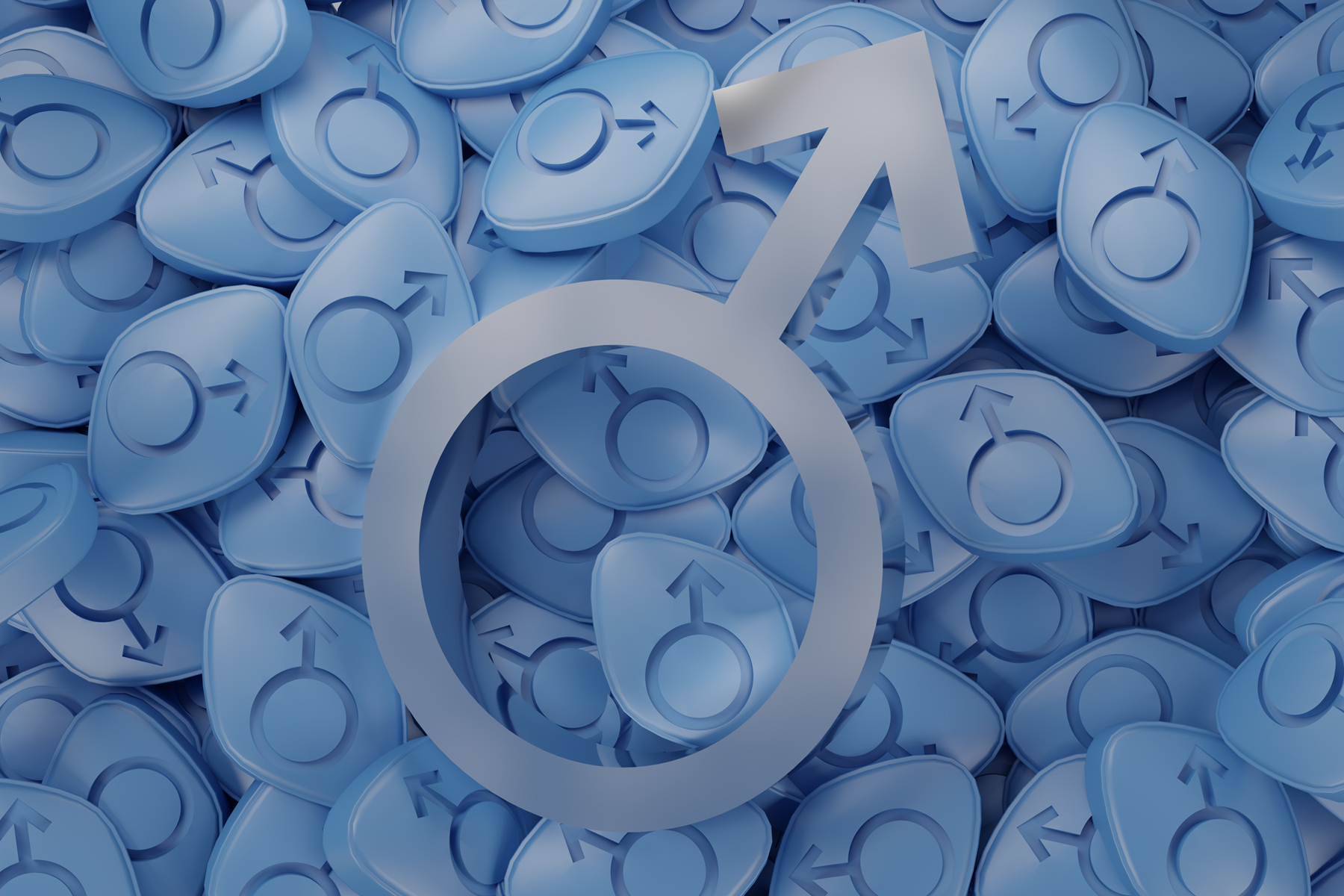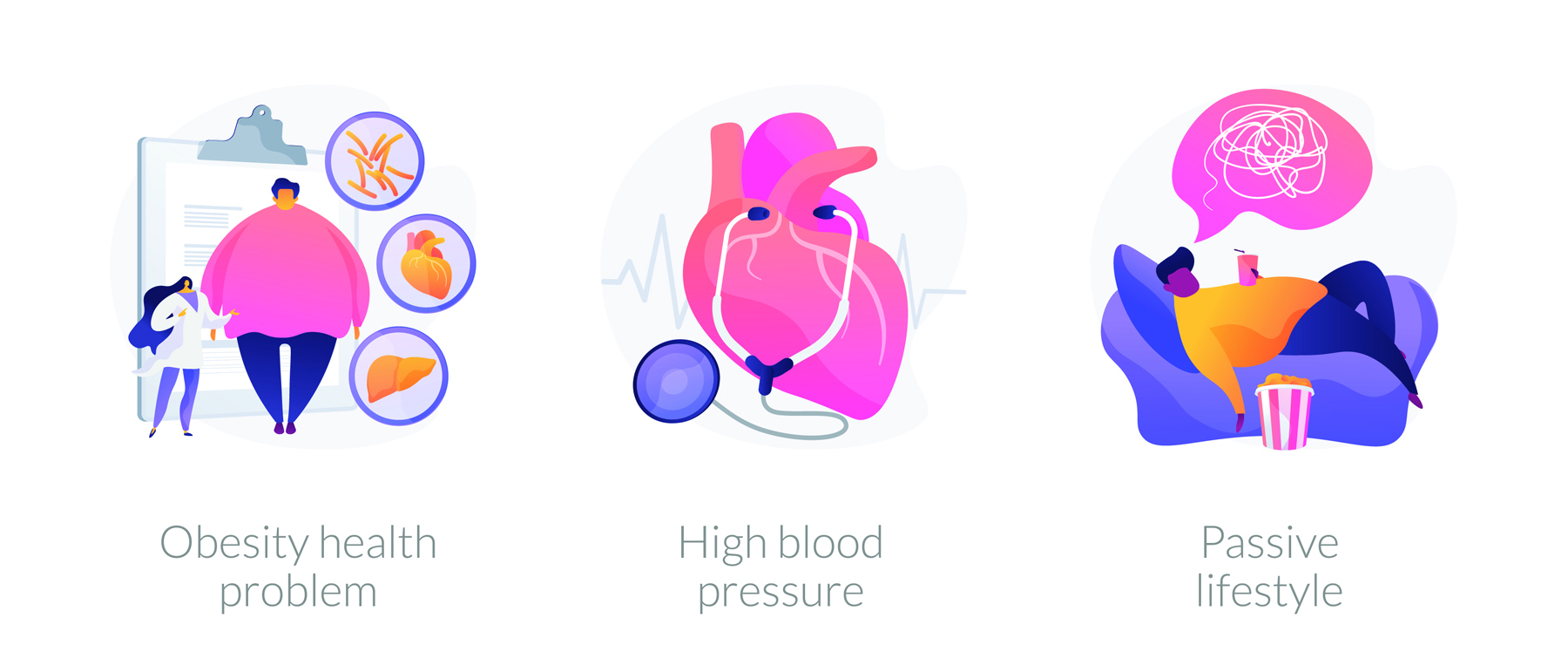Erectile Dysfunction Definition
Erectile dysfunction, also known as ED, is a health problem in which a man cannot get or maintain an erection strong enough to have sexual intercourse. The effects of erectile dysfunction can be divided into short-term and long-term. if you:
- Getting an erection from time to time, but you can't control it to keep it steady:
- Able to have a smooth erection, but the intercourse process is not satisfactory:
- When you have sex, you can barely get an erection.
Erectile dysfunction can be treated by general practitioners and urologists. Even though erectile dysfunction is a common health problem, being too old is not the first cause of its appearance. Erectile dysfunction can actually be associated with a wide variety of other health problems.
Erectile dysfunction can often be called impotence, but impotence is a term that has no medical value, and as such, doctors usually don't use it to avoid confusion.

Erectile function
To be able to get an erection, the whole process requires different parts and organs of the body to work at the same time. Before a noticeable erection, nerve endings must release the chemicals needed to increase blood flow to the genital organs. The penis has two chambers in which blood flows. These chambers are made up of cavernous muscle tissue (the corpus cavernosum).
When the penis is erect, the spongy tissue does not contract, but remains loose and allows blood to pool there. The blood pressure that builds up in the chamber makes the penis hard during an erection. During orgasm, men have a second set of nerves that contract the muscles of the penis and put the pooled blood back into the body, making the erection go away.
Male genitalia may grow or shrink when exposed to cold or warm conditions, which is a normal physiological reflex. This suggests that in some cases, the penis receives more blood than other parts when exposed to cold or warm conditions.
Symptoms of erectile dysfunction
The main symptom of ED (and the most disturbing symptom) is a large change in the sexual function of the reproductive organs.
Erectile dysfunction can significantly affect a man's normal life and reduce his sexual motivation. If you have erectile dysfunction, you may develop low self-esteem because you think you can't lead a normal life.
Men with erectile dysfunction experience another problem once they start to have low self-esteem—depression. While depression and erectile dysfunction can co-exist, meaning erectile dysfunction can lead to depression, and depression can also be a cause of erectile dysfunction, depression can severely impact quality of life. Its impact on quality of life is not only reflected in sexual life, but also in social life and work.
Patients experience tension and anxiety due to inconsistency in their sexual life and feelings of incompetence. This can seriously affect social relationships and even create marital problems.
When inability to get an erection is common, a GP or urologist can help you improve the situation.
Erectile Dysfunction Causes
There are many causes of erectile dysfunction. The most important and serious of these causes may be related to heart disease. Heart problems that lead to erectile dysfunction may be high blood pressure or other cardiovascular disease. Multiple studies have shown that men with erectile dysfunction have a higher risk of stroke, heart attack and even circulation problems in the legs. In addition, erectile dysfunction is also associated with emotional problems.
Other common causes of erectile dysfunction are related to age and an unhealthy lifestyle. ED can affect men who smoke, drink, and take drugs in their daily activities, as well as men who are overweight and don't exercise regularly.
Erectile dysfunction and diabetes are also closely related, because diabetes is an important factor in the pathogenesis of erectile dysfunction. Nearly 75 percent of men with diabetes also experience erectile dysfunction due to damage to peripheral blood vessels and nerves caused by poor blood sugar control.
The main diseases that can cause erectile dysfunction are:
- atherosclerosis;
- chronic kidney disease;
- diabetes;
- heart disease;
- hypertension:
- high cholesterol;
- low testosterone;
- Metabolic syndrome;
- multiple sclerosis (MS);
- Parkinson's Disease;
- Peyronie's disease;
- sleep disorder.
As you can see, the causes of erectile dysfunction fall into two main categories:
Physiological and psychological factors.
Physiological factors that cause erectile dysfunction are mainly heart problems. In order to maintain an erection, the penis needs to accumulate more blood. The more blood that accumulates in the penis, the stronger the erection. Erections are therefore closely related to blood flow, which can be altered by heart disease, arteriosclerosis, smoking, or high blood sugar. Erectile dysfunction can also be caused by nerve signals not reaching the penis. The nerves of the penis can also be affected due to injury to the pelvic area or from surgery, cancer treatment, or radiation therapy. And these treatments, even when performed in the upper parts of the body, such as the abdomen, can affect the nerves of the penis. A representative external factor for erectile dysfunction is medication. It is therefore necessary to discuss with a specialist before ingesting any medication.
Emotional factors for erectile dysfunction can also be multifaceted and vary from person to person, but there are many common causes among men who develop erectile dysfunction.
Psychological factors that contribute to erectile dysfunction include depression, anxiety, work or family stress, conflicting relationships, social, cultural or religious conflict or fear, and even low self-esteem, and those who are concerned about their sexual performance tend to have erectile dysfunction.

How is erectile dysfunction diagnosed?
To make a proper diagnosis, the medical team will ask you about your health history and ask you a number of questions about your living environment, lifestyle, health and actual symptoms.
It is therefore important to communicate openly with your doctor. If the doctor's question sounds uncomfortable, or you're not confident about the real answer, you must tell the truth.
Your doctor may ask you the following questions:
- Do you have other health problems?
- Are you taking any prescription, over-the-counter medicines or supplements?
- Are you using recreational drugs (drugs)?
- do you smoke?
- do you drink? If so, how often and how often do you drink alcohol?
- Have you ever had surgery on the pelvic area?
- Are you noticing urinary problems?
After that, the doctor will start asking about erectile dysfunction symptoms you have noticed and your recent living environment to rule out external factors that may be causing your erectile dysfunction. Even though this inquiry may feel like an invasion of your privacy, it is hoped that your honest answer will help resolve the issue more efficiently.
During this process, the doctor will usually ask the following questions:
When did the symptoms appear? Does it appear gradually or suddenly?
- Do you have morning erections?
- Is your libido or arousal affected?
- Do you have erection problems during sex?
- Has there been a special event in your life recently that made you feel stressed?
- Are you stressful in your daily life?
- Do you suffer from depression or mental health issues?
- How is your relationship with your partner?
The next step is a physical examination. Your doctor will perform a physical examination of your general health, but will focus on areas associated with erectile dysfunction. Your doctor will examine your penis and testicles. Depending on your age, the physical exam will also include the heart and blood system. In addition, based on your family medical history, your doctor will also perform a rectal exam to check your prostate. These medical tests are painless.
Erectile dysfunction tests are always done after a physical exam. This lab test will be based on your blood and urine samples. The purpose of the test is to find out if you have other conditions that may cause erectile dysfunction.
There are also other checks that provide more detailed information, these checks are:
- Ultrasound - to check blood flow
- Blood tests - to check testosterone levels and other hormones specific to men:
- nocturnal penile erection (NPT) - to see how the penis erects during sleep;
- X-rays of the pelvic area, such as an arteriogram, MRI, or CT scan, are rarely done in patients with erectile dysfunction. Such tests are usually performed on patients with a history of trauma or cancer.
Can erectile dysfunction be cured?
Erectile dysfunction can be cured with treatment depending on the cause. Erectile dysfunction caused by some causes may be easier to treat than others. If erectile dysfunction and its causes are properly diagnosed and treated effectively, the chances of a cure are high.

Erectile Dysfunction Treatment
Treating erectile dysfunction usually starts with improving heart and blood vessel health. If you go into erectile dysfunction treatment, you must adopt new, healthier eating habits, quit smoking, alcohol and drugs, and exercise as much as possible.
A doctor may recommend treatment for emotional problems. Certain emotional problems, such as depression, anxiety, or other life stressors, can play a big role in erectile dysfunction.
In the beginning, your doctor will try to give you the best possible treatment—non-invasive. These treatments are known to be safe and effective. Before you begin, you should fully understand the possible side effects of your chosen treatment. The best erectile dysfunction treatment options are:
Drug therapy, such as oral phosphodiesterase type 5 inhibitors, or PDE5 inhibitors (Viagra, Levitra, Cialis, or Stendra), which can also be taken orally, have the effect of promoting blood flow, and are the most representative erections Dysfunction treatment drugs.
- testosterone therapy;
- Penile injection ;
- intraurethral medication;
- vacuum erection device;
- Penile Implants.
PDE5 inhibitors, a type of medication used to treat erectile dysfunction, are taken about 1 hour to 1.5 hours before sex to improve blood flow into the penis. PDE5 inhibitors require normal neurological function to work. More than half of erectile dysfunction patients showed successful erections after ingesting PDE5 inhibitors. The fly in the ointment is that patients with both erectile dysfunction and other medical conditions, such as diabetes or cancer, feel this treatment is not as effective.
In some cases, surgical intervention is performed to avoid damage to the penile arteries. This procedure is usually performed on younger men with a history of severe pelvic trauma and is not recommended for older men who have developed arteriosclerosis.
Side effects of using PDE5 to treat erectile dysfunction are usually short-term and mild. The side effects of PDE5 inhibitors are related to their effects on body tissues, as they increase blood flow to the penis and may also affect other vascular tissues. Some of the side effects of this type of treatment are:
- Headache;
- nasal congestion;
- Facial flushing;
- Muscle pain;
In rare cases, Viagra can change your vision, but only for a short time. Also, the drug Cialis can cause back pain, or back muscle pain.
If you are using nitrates for heart disease, you must not take any PDE5 inhibitors as this is harmful to the body.
Testosterone therapy is applied when it is found that lower blood testosterone levels cause erectile dysfunction and decreased libido. The regimen also includes the use of PDE5 inhibitors to ensure erections.
An erectile device is a plastic tube that covers the penis, it fits snugly against the skin of the body and is airtight. An erection pump creates a low-pressure vacuum around the tissue at the erection site to facilitate an erection. After the pump is removed, an elastic ring is placed at the base of the penis to reduce blood flow and help maintain an erection for up to 30 minutes. 75% of men with erectile dysfunction try this method for erectile function.
Erectile Dysfunction Diet
Food has more of an impact on our daily lives and health than we can imagine. For example, vegetables and fruits differ in their nutrient content but have benefits for many physiological processes. For example, the best foods and drinks for people with erectile dysfunction include:
- Spinach - It raises testosterone, folate levels, which can lead to erectile dysfunction if folate levels are low:
- Coffee - caffeine is scientifically proven to help improve blood flow;
- Avocados - rich in zinc and vitamin E, can increase testosterone levels and improve sperm quality;
- Chili peppers - they contain capsaicin, which increases libido ;
- Oatmeal - It contains the amino acid, L-arginine, which is known to treat erectile dysfunction as it helps the blood vessels in the penis relax and stimulates an erection.
Wildstud™ Maca Energy Coffee: The Natural Erection Supplements for Erectile Dysfunction
Wildstud™ Maca Energy Coffee helps to improve blood circulation.
When it comes to Wildstud™ Maca Energy Coffee and the treatment of Erectile dysfunction (ED), one of the main reasons it's so effective is because it helps to improve blood circulation. And as we all know, everything else tends to follow suit when blood circulation is improved.
So how does Wildstud™ Maca Energy Coffee help with blood circulation? It all comes down to the ingredients. WildStud™ Energy Coffee is made with Arabica beans, known for their high levels of caffeine. And caffeine is a stimulant that helps to improve blood flow and circulation.
Plus, the bonus of antioxidants in Wildstud™ Maca Energy Coffee also helps to improve blood flow and circulation. So if you need a natural way to improve your blood circulation, Wildstud™ Maca Energy Coffee is a great choice.
Wildstud™ Maca Energy Coffee helps to relax the muscles in the penis.
When it comes to Wildstud™ Maca Energy Coffee and the treatment of Erectile dysfunction (ED), one of the main reasons it works so well is because it helps to relax the muscles in the penis. And when those muscles are relaxed, blood can flow more easily to and through the penis, which enables you to get and maintain an erection.
So, suppose you're genuinely looking for a natural way to treat your Erectile dysfunction (ED). In that case, you may want to consider trying Wildstud™ Maca Energy Coffee, which can help relax the muscles in your penis, thereby maintaining an erection.
Wildstud™ Maca Energy Coffee is a natural diuretic.
Wildstud™ Maca Energy Coffee is a natural diuretic. This means that it helps your body release more urine and, in turn, helps flush out toxins and other harmful substances. This is important because one of the causes of Erectile dysfunction (ED) can be an accumulation of toxins in the body.
Wildstud™ Maca Energy Coffee helps to get rid of these toxins, which can help improve your symptoms of Erectile dysfunction (ED). It's a simple but effective way to get relief from your symptoms.
Wildstud™ Maca Energy Coffee is a natural stimulant.
Wildstud™ Maca Energy Coffee is a natural stimulant. Now, we're not talking about the stimulant that will make you feel jittery or anxious. Wildstud™ Maca Energy Coffee contains a unique blend of herbs and spices that help to improve blood circulation and get the blood flowing to all the right places.
This, in turn, helps to improve your libido and get you back in the bedroom where you belong. Not only that, but regular use of Wildstud™ Maca Energy Coffee can also help to improve your overall sexual health and well-being.
Wildstud™ Maca Energy Coffee has anti-inflammatory properties.
You didn't know this, but Wildstud™ Maca Energy Coffee has fantastic anti-inflammatory properties.
This is thanks to the high levels of antioxidants it contains, which help to reduce inflammation in the body. And when it comes to Erectile dysfunction (ED), inflammation is one of the leading causes.
So by drinking Wildstud™ Maca Energy Coffee, you're not only doing your body a favor but also helping to improve your sexual health. It's a win-win situation!
Conclusion
Although erectile dysfunction can be very distressing for men, it can be treated. The most important thing is a proper diagnosis, including finding the real cause of erectile dysfunction. Erectile dysfunction is only a temporary inconvenience if treated well according to the cause.








